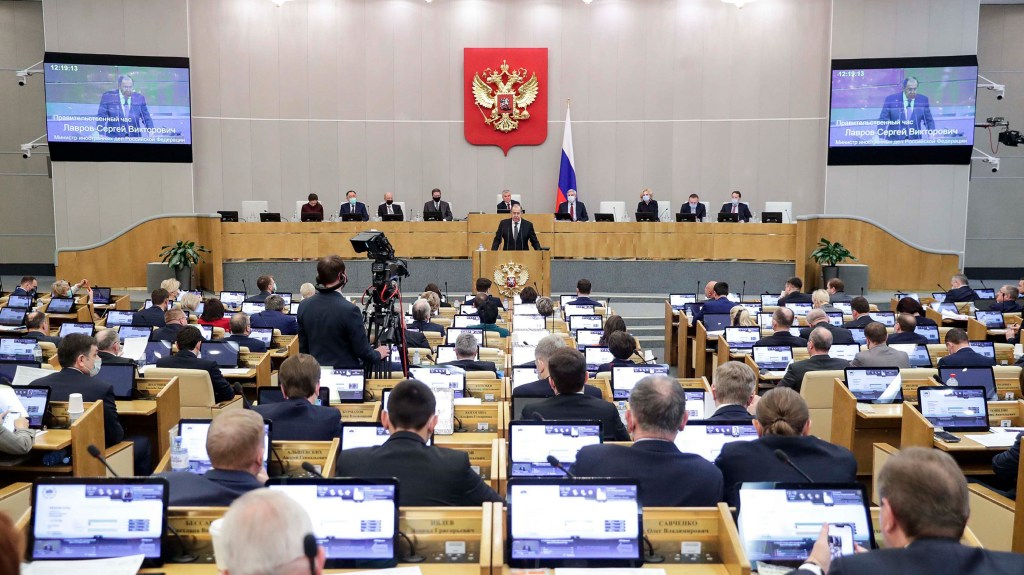Paris, March 3, 2022 – Russian lawmakers should not pass a draft law that would threaten to imprison journalists for sharing information about the country’s recent invasion of Ukraine, the Committee to Protect Journalists said Thursday.
The State Duma, the lower house of Russia’s legislature, is scheduled to consider legislation on Friday that would impose prison terms of up to 15 years for those convicted of disseminating “fakes,” or information that authorities deem to be false, about the actions of Russia’s armed forces, according to news reports.
The Duma could pass the bill during its Friday session, which would then send it to the upper house of parliament; if passed there, it could be enacted by President Vladimir Putin, reports said.
“Proposed Russian legislation that threatens to imprison people for sharing so-called ‘fake’ information about the country’s invasion of Ukraine is an obvious threat to free speech and the independent press,” said Gulnoza Said, CPJ’s Europe and Central Asia program coordinator, in New York. “The State Duma should withdraw this proposed legislation, and authorities must allow the media to freely cover all events related to the invasion of Ukraine.”
On February 28, the Duma Committee on Security and Anti-Corruption Action’s head, Vasily Piskarev, announced plans for the legislation, saying that “fakes” about the invasion were created in Ukraine and then “willingly spread by a whole range of Russian media,” according to reports.
The proposed legislation, which would amend the country’s criminal code, imposes prison terms of up to three years for the simple fabrication of false information; 10 years for disseminating false information using an official position, the internet, or a group of people; and 15 years for disseminating false information with socially dangerous consequences, according to multiple news reports.
Also on Thursday, the independent radio station Echo of Moscow announced its liquidation and the independent broadcaster Dozhd TV declared during a live broadcast that it was temporarily suspending its activities.
The two independent broadcasters’ websites have been inaccessible in Russia since Tuesday, when the prosecutor general’s office ordered the country’s media regulator to block their websites for spreading “deliberately false information about the actions of Russian military personnel,” as CPJ documented at the time.
Dozhd editor-in-chief Tikhon Dzyadko told CPJ in a phone interview that the outlet had suspended operations because “Russian legislators put us in such situation that makes it impossible to continue working as a journalist.”
“Tomorrow, a new bill is set to be adopted about allegedly fake news,” he said. “It will make reporting on Ukraine practically impossible, illegal. It poses a threat to all of us, that’s why we made such [a] decision.”
CPJ emailed the Russian State Duma for comment but did not receive any reply.
(Editor’s note: Russia’s Duma approved the law on Friday, March 4, 2022.)
